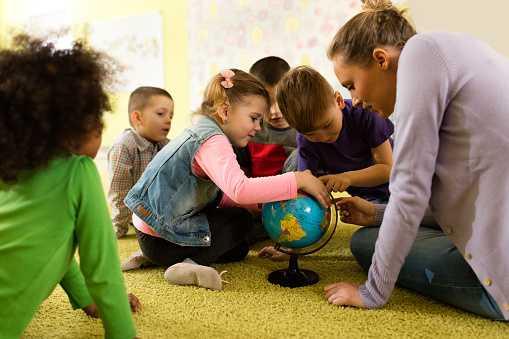Learn more about parenting with this collection
How to overcome fear of rejection
How to embrace vulnerability
Why vulnerability is important for personal growth
Four natural drives in children
Children are naturally very curious, playful, and sociable soon after birth. Planfulness - the drive to think about and make plans for the future - emerges in the early months and develops as children grow older.
Conventional and coercive schools suppress these drives in the interest of promoting conformity and keeping children fixed to the school's curriculum. But self-directed education allows these natural drives to flourish.
1
5 reads
Curiosity
Soon after birth, infants begin to look longer at unfamiliar objects than those they are familiar with. Within months, they can recognize patterns, problem solve and make cause-and-effect connections about how the world around them works. They are always getting into things, exploring, experimenting, and gathering information.
Unless schooling or schoolish interference squashes the natural curiosity and drive of children, curiosity will remain as children grow older.
1
3 reads
Play is not recess from education; play IS education
Playfulness motivates children to practice new skills.
Children play:
- In physical ways - climb, chase, tumble: It develops strong bodies and movement.
- In risky ways: They learn to manage fear and develop courage.
- With language: That is how they become competent with language.
- Socially: They learn to communicate and get along with others.
- Games with implicit or explicit rules: They learn to navigate and negotiate rules.
- Imaginative games help them to learn to think hypothetically and creatively in collaboration with others.
- With logic.
- At building things.
1
6 reads
Sociability
Children are born with an instinctive knowledge that their survival and wellbeing depend on their ability to connect with and learn from other people. As soon as they can communicate, they will inquire about their world, for the connection and information.
Language enables children to learn. The ability to use language help social interactions. Because of the Internet, much of the world is at our fingertips, and self-directed learners will naturally seek new information, connection or opportunities.
1
1 read
Planfullness
We have the capacity to think ahead if we are driven to do so. This is the most consciously cognitive of our basic educative drives and develops slower than the other drives. This drive to motivate and plan ahead leads self-directed learners to think about life goals, and they deliberately seek out the knowledge and practice the skills needed to achieve their goals.
Research shows that children who have lots of free time to play and explore independently, develop this capacity more fully than children who spend more time in adult-structured activities.
1
1 read
IDEAS CURATED BY
Other curated ideas on this topic:
7 ideas
Educare, Educere, Explorare | Alliance for Self-Directed Education
self-directed.org
15 ideas
7 ideas
The 'Why' Behind Asking Why: The Science of Curiosity
knowledge.wharton.upenn.edu
Read & Learn
20x Faster
without
deepstash
with
deepstash
with
deepstash
Personalized microlearning
—
100+ Learning Journeys
—
Access to 200,000+ ideas
—
Access to the mobile app
—
Unlimited idea saving
—
—
Unlimited history
—
—
Unlimited listening to ideas
—
—
Downloading & offline access
—
—
Supercharge your mind with one idea per day
Enter your email and spend 1 minute every day to learn something new.
I agree to receive email updates

